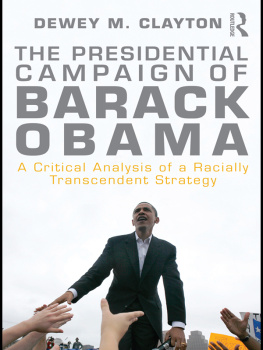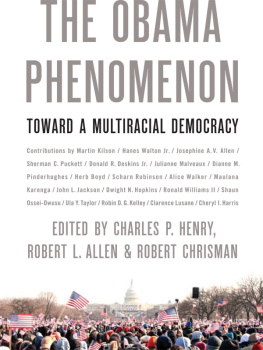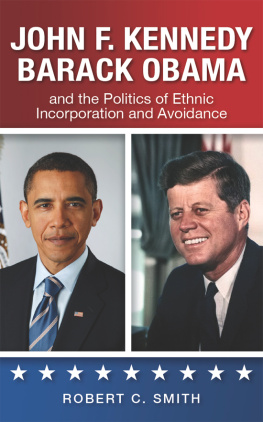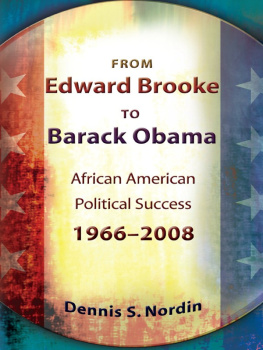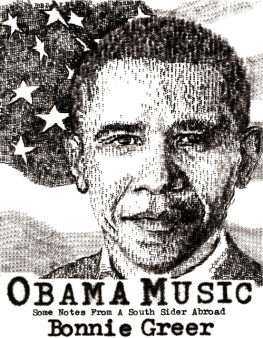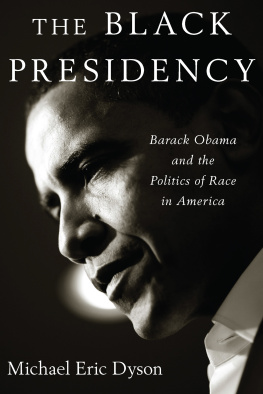The Presidential Campaign of Barack Obama
In the early twenty-first century, race still occupies a dominant role in American politics. Despite this truism, presidential candidate Barack Obama was uniquely poised to transcend both race and party as the first African American to have a realistic chance of winning the presidency. Previous contenders running in the traditional mode of the civil rights movement based their appeal primarily on African American voters. Obama, on the other hand, ran a deracialized campaign in an effort to appeal to voters of different backgrounds and political parties.
Clayton examines how race in American politics has changed over time and offers an explanation for why Obamas candidacy offers a different roadmap for the future. The Presidential Campaign of Barack Obama provides students of politics, inside and outside of the classroom, a unique opportunity to explore the institutional and structural challenges an African American faces in becoming the president of the United States. This guide to major issues in black politics and the ins and outs of the 2008 campaign provides the necessary contours for understanding how the highest elected African American official won office.
Dewey M. Clayton is Professor in the Department of Political Science at the University of Louisville. He is the author of African Americans and the Politics of Congressional Redistricting and numerous scholarly articles.
The Presidential Campaign of Barack Obama
A Critical Analysis of a Racially Transcendent Strategy
Dewey M. Clayton

NEW YORK AND LONDON
First published 2010
by Routledge
270 Madison Avenue, New York, NY 10016
Simultaneously published in the UK
by Routledge
2 Park Square, Milton Park, Abingdon, Oxon OX14 4RN
Routledge is an imprint of the Taylor & Francis Group, an informa business
This edition published in the Taylor & Francis e-Library, 2010.
To purchase your own copy of this or any of Taylor & Francis or Routledges collection of thousands of eBooks please go to www.eBookstore.tandf.co.uk.
2010 Taylor & Francis
All rights reserved. No part of this book may be reprinted or reproduced
or utilized in any form or by any electronic, mechanical, or other means,
now known or hereafter invented, including photocopying and
recording, or in any information storage or retrieval system, without
permission in writing from the publishers.
Trademark Notice: Product or corporate names may be trademarks
or registered trademarks, and are used only for identification and
explanation without intent to infringe.
Library of Congress Cataloging in Publication Data
Clayton, Dewey M.
The presidential campaign of Barack Obama : a critical analysis of a racially
transcendent strategy / Dewey M. Clayton.
p. cm.
Includes bibliographical references.
1. PresidentsUnited StatesElection2008, 2. Political
campaignsUnited States. 3. Obama, Barack. 4. United StatesPolitics
and government20012009. I. Title.
JK5262008 .C53 2010
324.973'0931dc22
2009038465
ISBN 0-203-88395-0 Master e-book ISBN
ISBN 10: 0415997348 (hbk)
ISBN 10: 0415997356 (pbk)
ISBN 10: 0203883950 (ebk)
ISBN 13: 9780415997348 (hbk)
ISBN 13: 9780415997355 (pbk)
ISBN 13: 9780203883952 (ebk)
To my parents,
Christine and Dewey,
who continue to be my greatest source of inspiration
Contents
Tables
1.1 | Voter Registration Rates, 1965 vs. 2006 |
3.1 | Past Realigning Elections |
3.2 | Southern States Won by Bush in 2000 |
4.1 | White Voting Trends in Presidential Elections, 19682008 |
4.2 | Percentage of White Support Under 35 Percent |
4.3 | States Where Obama Obtained a Majority of the White Vote |
4.4 | Percentage of Educated White Electorate Voting for Democrats, 19882008 |
6.1 | General Election Matchups (Among Registered Voters) |
6.2 | South Carolina Official Results |
6.3 | 2008 Presidential Debate Performance Polls |
Preface
The election of Barack Obama was not just one of the most fascinating and historic campaigns in this countrys history; it was also the triumphant convergence of a man for his time, a message for the moment, and the march of history into a new millennium, a new era. All previous forty-three presidents of the United States had been white males. Barack Obama, born of an African father from Kenya and an American mother from Kansas, became number forty-four, representing both a cultural mlange and cultural shift change in American, even global, politics.
From the primary season to the general election, Barack Obamas candidacy was an unlikely one. Given Americas racist past, some contended the country wasnt ready to elect an African American as president. Others argued the one-term senator and former community organizer was too young and inexperienced and needed to wait his turn. But Obama proved his keen political instincts and outlined a bold and innovative strategy to win first the Democratic primary, then the presidency. He overcame the formidable name recognition and war chest of Hillary Rodham Clinton, a second-term senator whose husband had served two terms as president and had been elevated to iconic status in many Democratic communitiesespecially the black community. In the general election, he faced a war hero and political maverick in John McCain. I argue, in this book, that Obama was uniquely situated to overcome the obstacles and the odds to offer America a message of hope and racial reconciliation.
Obama did not run as an African American candidate but as a candidate who happened to be African American. Throughout most of the campaign, he downplayed his ethnic background, while at the same time using his race and relative youthfulness to reach out to entire new subsets of voting blocs. His campaign increased turnout particularly among voters younger than 30, connecting with them by using new mediaprimarily the Internetto create a new movement of supporters who organized, mobilized, and turned out at the polls. Obama attracted not only young voters, but also Hispanics and African Americans of all ages in record numbers. He executed a fifty-state strategy that aggressively pursued the vote in states his Democratic predecessors had written off; Obama put these statesincluding some in the Old Confederacyback into play for the Democratic Party.
Money, called the mothers milk of politics, was also the sustenance for Obamas groundbreaking campaign. But where and how he hauled in record amounts of campaign cash created a whole new paradigm for successful campaigns. Obamas unique coalition of liberals, independents and disaffected Republicans mixed main street dollars with Wall Street wallets, infused with an unprecedented and uninterrupted flow of cash from contributors via the Internet. Obama has ushered in a much more democratic election process, open to all of the people, whether rich or poor, black, white, brown, or red.

